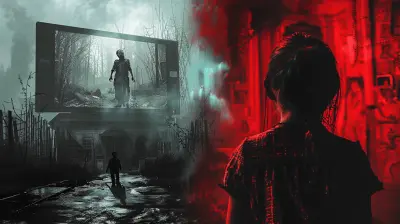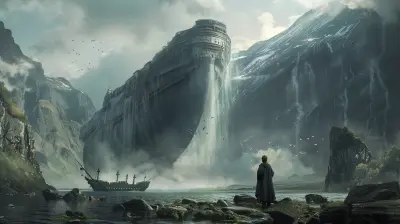The Impact of Lovecraftian Horror on Modern Game Development
7 September 2025
If you’ve ever played a game that left you feeling a bit unsettled—not because of jump scares, but because something just seemed… off—you might’ve wandered into the weird, mind-bending world of Lovecraftian horror.
You know, that creeping dread where the unknown is more terrifying than the known. The sensation that something ancient, unknowable, and utterly indifferent to your existence is lurking just out of sight? Yeah, that’s got H.P. Lovecraft’s fingerprints all over it. And whether you realized it or not, this brand of horror has absolutely reshaped the landscape of modern game development.
Let’s dive into how Lovecraftian horror has slithered and crept its way into some of your favorite video games—and why it’s not going anywhere anytime soon.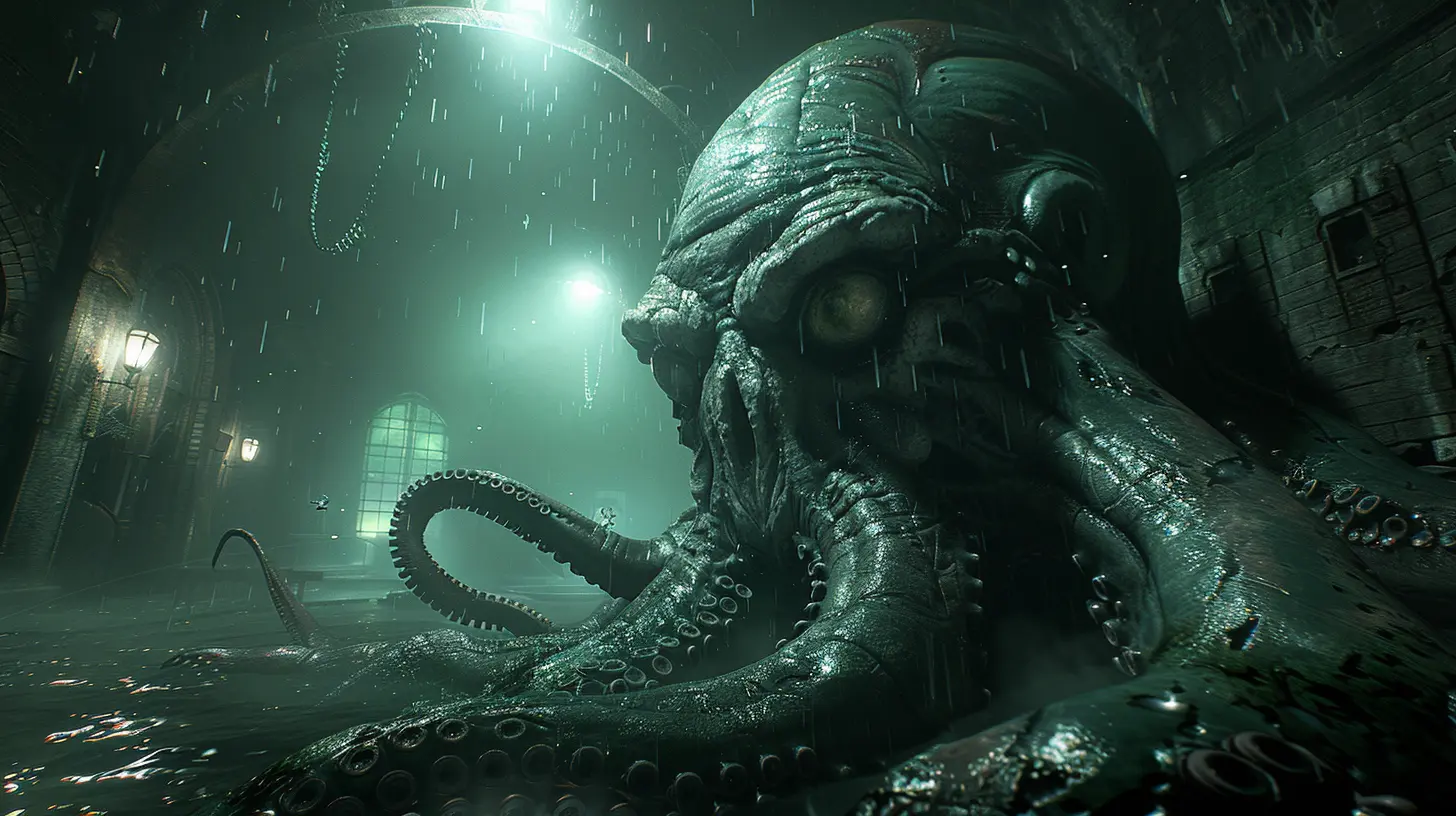
What Is Lovecraftian Horror, Anyway?
Before we go full tentacle, let’s pause for a second.So what exactly do we mean by "Lovecraftian horror"? In short, it's a branch of horror based on the writings of H.P. Lovecraft, a 20th-century American writer who pioneered this unique blend of cosmic horror, madness, and the illusion of control.
Unlike traditional horror that depends on gory visuals or serial killers in masks, Lovecraftian horror messes with your mind. The horror comes from the unknown, the unknowable, and the realization that we are tiny, fragile specks in an unfathomably large and uncaring universe. Yeah, heavy stuff.
And honestly, it works insanely well in video games.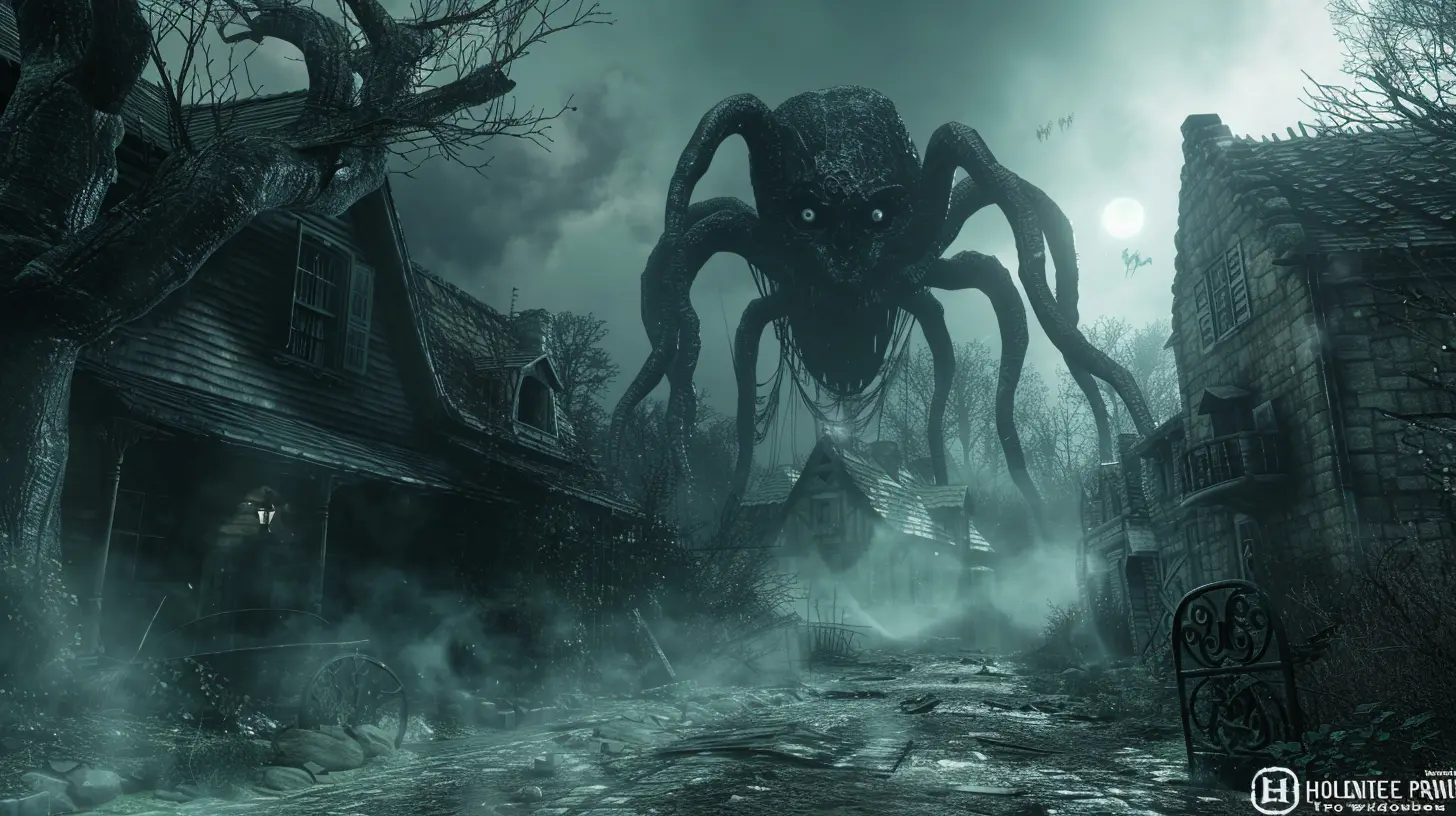
Games and Lovecraft: A Match Made in Madness
Video games are the perfect playground for Lovecraftian horror. Why? Because games let you be the person slowly losing their sanity. You’re not just watching someone go mad—you’re going mad with them.The Power of Immersion
Games are interactive, which makes the horror more personal. When you’re the one turning every corner, when the environment is shifting under your feet, and when your character is hearing whispers that may or may not be real—those chills hit different.Gamers aren’t just spectators. We live the slow descent into madness, and we love every twisted second of it.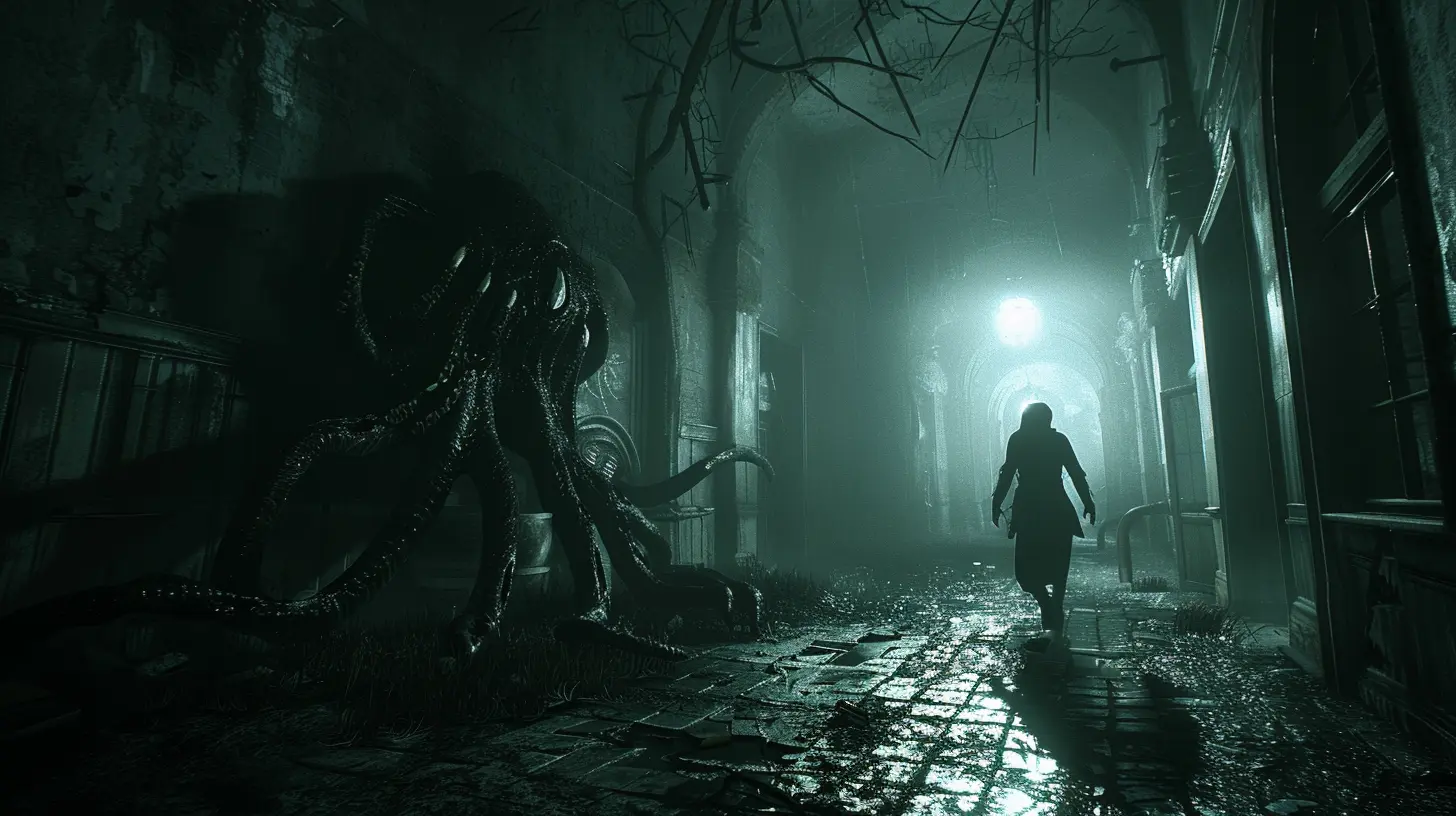
Core Elements of Lovecraftian Horror in Games
Let's break down the spooky elements that developers borrow from Lovecraft—and how they use them so effectively:1. Cosmic Horror
The fear of the unknown and the unknowable. Eldritch gods that you can’t even comprehend, let alone fight. Games like Bloodborne and Call of Cthulhu lean in hard here. You’re dealing with forces outside time and space, and your actions feel... insignificant. That’s kind of the point.2. Madness and Insanity
A fan favorite (and by "fan" I mean us twisted horror lovers). In many Lovecraft-inspired games, sanity becomes a gameplay mechanic. Take Amnesia: The Dark Descent. The more terrifying things you experience, the more your mind unravels—blurring reality and hallucination.3. Unpredictable Narratives
Forget clear endings and black-and-white morality. Lovecraftian games love to keep things murky. You might win, but did you really? Or did you just become part of something much bigger, darker, and more terrifying?4. Non-Euclidean Spaces
This one's a biggie. Expect locations that defy logic—hallways that go in circles, staircases that never end, or rooms that shouldn’t physically exist. It's disorienting, it’s creepy, and it’s absolutely Lovecraftian.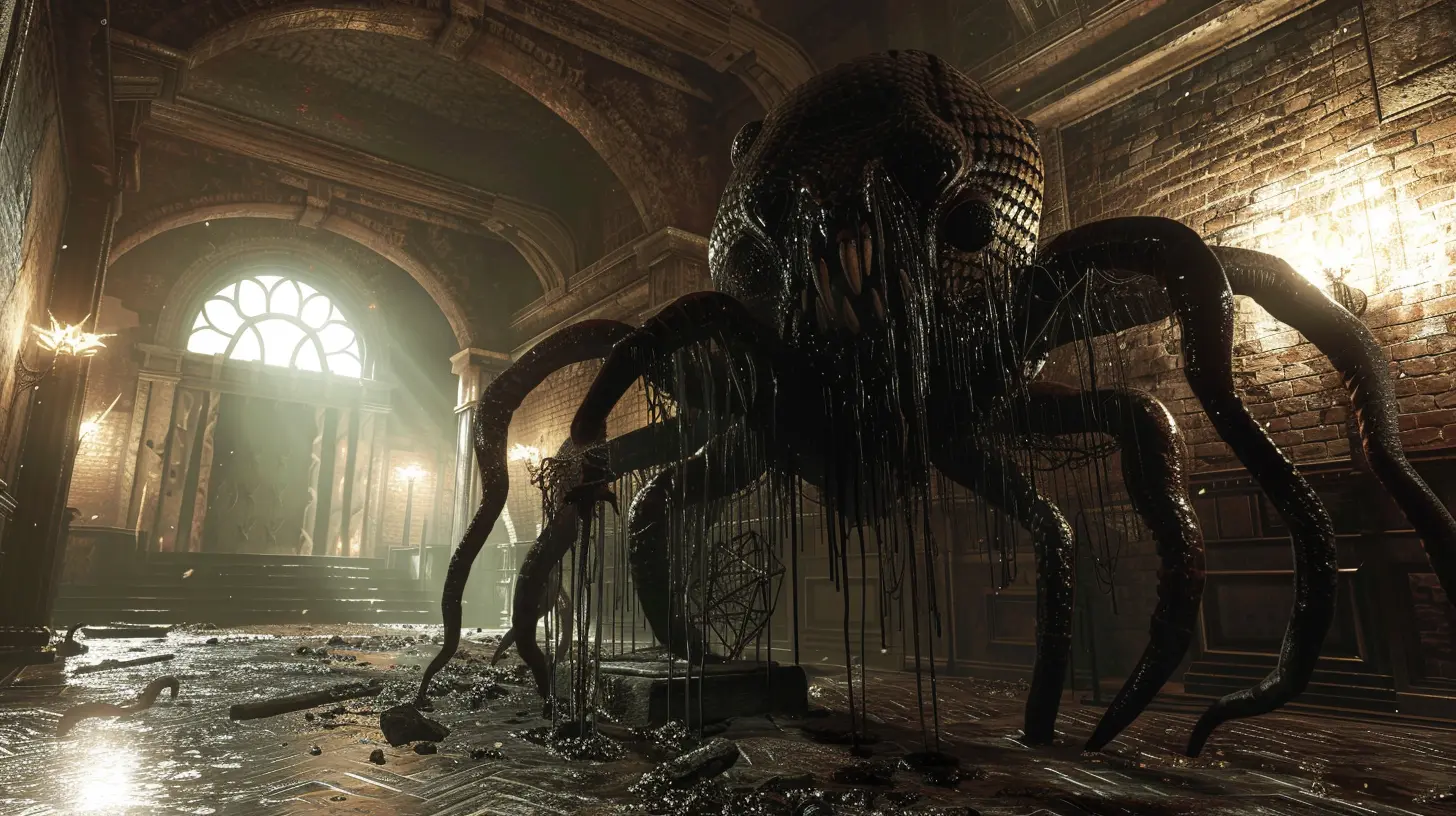
Major Titles Drenched in Lovecraftian Influence
Let’s spotlight some games where this eerie influence is downright unavoidable.🎮 Bloodborne
From Software’s dark masterpiece is practically a love letter to Lovecraft. Starting off like any gothic horror game and slowly unraveling into a cosmic nightmare, Bloodborne is a textbook example of how to blend action RPG mechanics with deep, creeping dread.The beasts you fight? Not just monsters—they’re ancient beings twisted by knowledge man was never meant to possess. And holy moly, that shift halfway through? Chef’s kiss.
🎮 The Call of Cthulhu
Based directly on Lovecraft’s legendary mythos, this investigative horror game goes all in. Dark cults, ancient gods, unreliable narration—it’s all here. You play a private detective, but the real mystery is whether your own mind can survive the truth.🎮 Eternal Darkness: Sanity’s Requiem
An underrated gem from back in the GameCube days. This game did something wild: it broke the fourth wall to mess with you, the player. Fake volume changes, error screens, corrupted saves—it made you question whether the game was haunted or if you were losing your grip.Lovecraft would’ve loved it.
🎮 The Sinking City
Set in a fictional city plagued by supernatural floods and existential dread, this open-world investigation game is soaked with Lovecraftian vibes. It mixes detective work with mind-breaking revelations, all wrapped in a watery, decaying world.The Influence Behind the Curtain: Game Mechanics
So, we’ve seen how Lovecraftian horror influences story and setting—but it also seeps into the very mechanics of gameplay.🧠 Sanity Meters
Making a bad situation worse. Many games inspired by Lovecraft include some version of a sanity or mental stability meter. Your actions (or even just looking at certain things) can cause your character to spiral. It adds another layer of challenge and makes the horror more tangible.⛔ Lack of Power
Unlike traditional action games where you get stronger as you go, Lovecraftian games often restrict your power—or make you think you're getting stronger while slowly corrupting you. You’re not a hero; at best, you’re a slightly less doomed pawn.👁️ Unreliable Realities
Expect to question everything. Is that NPC telling the truth? Is that monster real or just in your head? Lovecraftian horror thrives on subjective reality and distorted perception. Some games even randomly rearrange elements or change events to deepen the paranoia.Why Developers Keep Coming Back to Lovecraft
Simple: it works. Lovecraftian horror taps into some of our deepest fears—the limits of human understanding, helplessness, the vast and uncaring universe.From a design perspective, it allows for unique narratives, unsettling world-building, and creative horror mechanics. It’s practically a sandbox for developers who want to blur lines between horror and existential nightmare.
Plus, let's face it—tentacle monsters are freakin’ cool.
Indie Devs and the Lovecraft Boom
It’s not just AAA studios embracing the weird. Indie developers are going nuts (pun intended) with Lovecraftian themes. Games like Darkest Dungeon, World of Horror, and Dredge show that with limited budgets, you can still deliver premium dread.Indie games often take bigger creative risks, and the unsettling, unexplainable nature of Lovecraftian horror fits their experimental vibe beautifully.
Will Lovecraftian Horror Ever Get Old?
Honestly? Not likely.As long as humans fear the unknown, as long as we question our place in the universe, and as long as developers keep finding new ways to mess with our heads, Lovecraftian horror will have a home in gaming.
It’s not just about shocks—it’s about atmosphere, ideas, and existential terror. That stuff doesn’t go out of style.
Final Thoughts: Embrace the Madness
Whether you're a dev looking for narrative inspiration or just a player who lives for a good scare, there's no denying that Lovecraftian horror has left a deep, writhing mark on the gaming world.It’s more than just spooky sea monsters and raving cultists. It’s about feeling small in a big, bizarre universe—and realizing you might never understand what’s really going on.
And that’s the beauty of it.
So next time you boot up a game and see tentacles slithering in the distance or hear whispers in the dark, take a deep breath and smile.
You’re not losing your mind… probably.
all images in this post were generated using AI tools
Category:
Horror GamesAuthor:

Greyson McVeigh
Discussion
rate this article
1 comments
Astranor Jimenez
Lovecraftian horror? More like Lovecraftian **bore**. If I wanted to deal with madness, I’d just check my bank account after a gaming binge.
October 5, 2025 at 2:24 PM

Greyson McVeigh
Thank you for your perspective! Lovecraftian themes can indeed evoke strong reactions, and for some, the existential dread they explore resonates deeply, while for others, it can feel tedious. It's interesting how different experiences shape our engagement with these themes.
